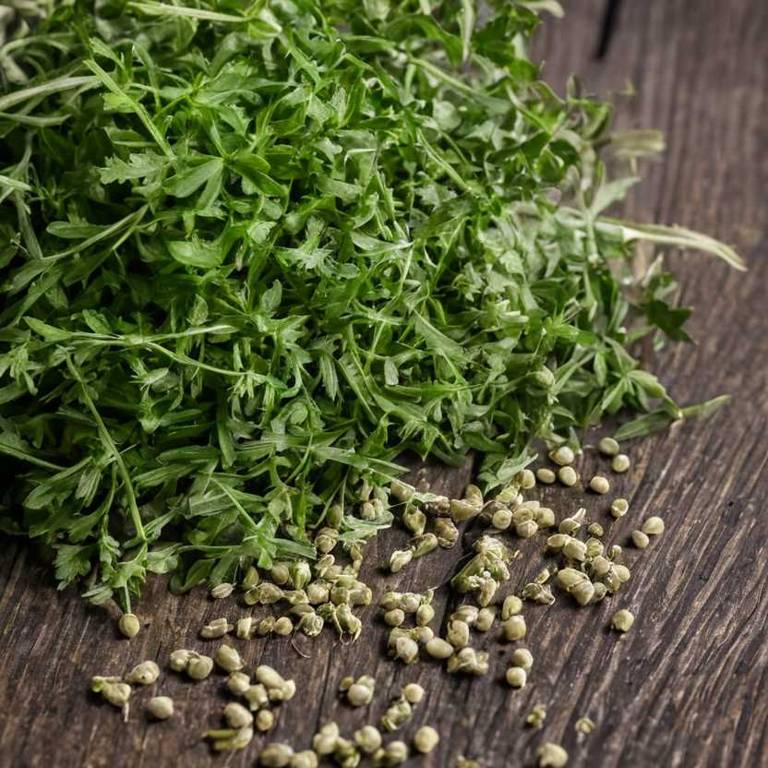Lepidium Virginicum: What To Know Before Using It For Medicinal Purposes

Lepidium virginicum, commonly known as peppergrass, has been traditionally used for its medicinal properties in various indigenous and alternative healing practices.
It contains compounds such as alkaloids and flavonoids, which are believed to contribute to its potential health benefits. Historically, it has been used to treat respiratory conditions, including coughs and bronchitis, due to its expectorant properties. Some studies suggest that it may have anti-inflammatory and antimicrobial effects, supporting its use in herbal remedies.
However, further scientific research is needed to fully understand its therapeutic potential and safety for medicinal use.
Health Benefits
Lepidium virginicum has several health benefits, such as its potential to support digestive health due to its high fiber content, which can promote regular bowel movements and prevent constipation.
It is also rich in antioxidants, which help combat oxidative stress and reduce the risk of chronic diseases. Additionally, the plant contains compounds that may have anti-inflammatory properties, making it beneficial for individuals with inflammatory conditions. Lepidium virginicum has been traditionally used to support respiratory health, possibly due to its ability to act as a natural expectorant.
Overall, incorporating this plant into a balanced diet may contribute to overall well-being and immune function.
10 Best Health Beneift of Lepidium virginicum
Bioactive Constituents
Lepidium virginicum has several bioactive constituents, such as alkaloids, flavonoids, and saponins, which contribute to its medicinal properties.
These compounds exhibit antioxidant, anti-inflammatory, and antimicrobial activities, making the plant valuable in traditional and modern medicine. Alkaloids like lepidine and lepidic acid have been studied for their potential in treating respiratory and gastrointestinal disorders. Flavonoids present in the plant help in scavenging free radicals, thus supporting immune function and reducing oxidative stress.
Saponins contribute to the plant's ability to enhance digestion and may also possess anti-cancer properties, further highlighting its therapeutic potential.
Medicinal Preparations
Lepidium virginicum has several medicinal preparations, such as teas, tinctures, and poultices, that have been traditionally used for their purported health benefits.
A common method of preparation is making a tea by steeping the dried seeds or leaves in hot water, which is believed to aid digestion and relieve respiratory congestion. Tinctures are often made by soaking the plant material in alcohol to extract its active compounds, and they are used to support immune function and reduce inflammation. Poultices, created by crushing the plant and applying it directly to the skin, are traditionally used for treating wounds and skin irritations.
These preparations highlight the plant's historical significance in herbal medicine and its continued use in alternative health practices.
Side Effects
Lepidium virginicum can have some side effects, such as gastrointestinal discomfort, including nausea, vomiting, and diarrhea, due to its high concentration of certain compounds.
In some cases, individuals may experience allergic reactions, ranging from mild skin rashes to more severe anaphylactic responses. Prolonged or excessive use of this plant may lead to liver or kidney damage, as it contains potentially toxic alkaloids. It is also important to note that Lepidium virginicum may interact with certain medications, reducing their effectiveness or increasing the risk of adverse effects.
Therefore, it is advisable to consult a healthcare professional before using this plant for any medicinal purpose.